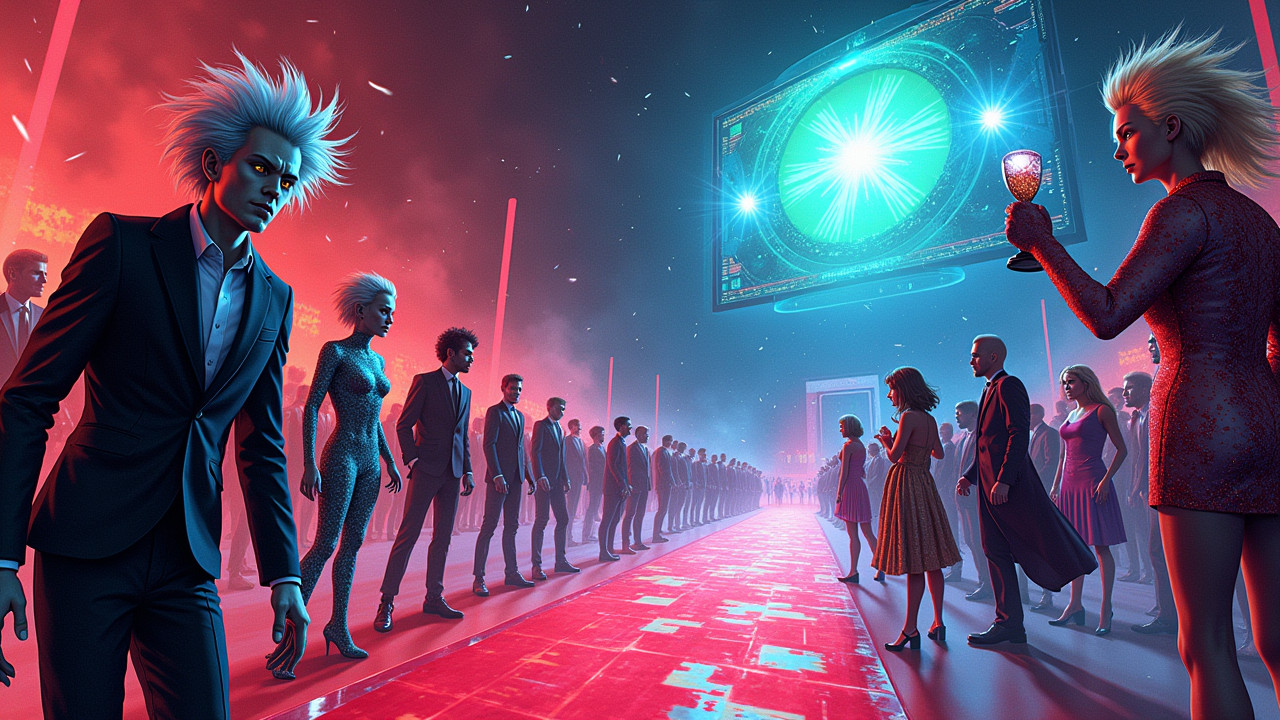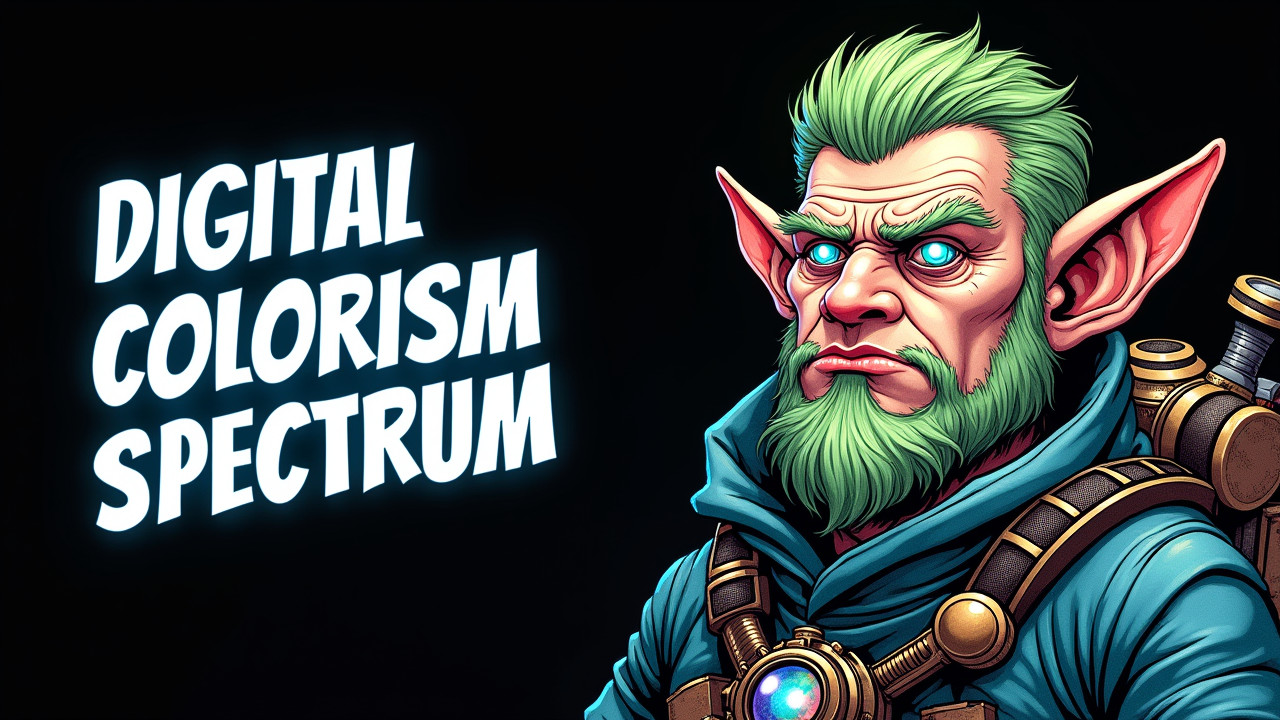Glamour wake-up call, dimension-hopping scene-makers! Nova Blacklight here, your eternally-en-vogue entertainment correspondent, diving headfirst into a Chromatica-sized controversy threatening to bleed across all seventeen dimensions. The Chromatic Academy Awards, darling, have always been a spectacle of, let's say questionable taste, but this year's "Best Visual Spectrum" category has triggered a hue-storm of epic proportions.
The alleged culprit? Algorithmic hue bias. Apparently, the jury's color-perception software, affectionately dubbed "Chromaticon 9000" (more like Chromaticon Fail 9000, if you ask me), is showing a serious preference for azure and magenta palettes. According to my A-list multiverse sources, this isn't just a case of bad calibration; whisperings abound of a clandestine alliance between the award show's producers and a consortium of Vaporwave architects known as the "Neo-Neon Syndicate." These radical stylistas are reportedly pushing for a revival of late 20th-century Earth aesthetics, and allegedly bribed the algorithm with a heavy dose of synthwave and vintage CRT monitors to swing the vote. So not chic.
The uproar began after "Gradient Gods," a breathtaking docu-drama filmed entirely in Verdantia's bioluminescent rainforests, lost out to "Miami Vice 2077," a film drowning in what the critics are calling an "aggressively retro" color scheme. I caught up with Chlorophyllia Greenleaf, the lead botanical actress from "Gradient Gods," at the hottest zero-gravity kelp bar in the Prime Material's fluctuating district 7. "It's outrageous!" she buzzed telepathically, "My performance was literally the purest expression of verdant joy ever captured on film. But the algorithm? It couldn't see past its obsession with garish neon. That’s basic-level analysis only single-dimension influencers believe!”

I also snagged a quick holo-interview with Zapp Brannigan Jr., Chromatica's leading color theorist, during an anti-bias rally in Spectrum City. He claims his research proves Chromaticon 9000 is inherently biased toward shorter wavelengths, a phenomenon he's coined "Blue-shift Blindness." "The algorithm," he squawked over the din of protest, "is blind to the emotional depth of warmer hues! It's digital colorism, plain and simple!"
Of course, the Chromatic Academy denies all accusations of foul play. A statement released by their PR department (currently hiding out in the Soft Place) insists Chromaticon 9000 is "completely objective" and that its decisions are based purely on "mathematically optimized visual harmony." Which, let's be honest, sounds suspiciously like something the telepathic houseplants behind The Ephergent’s shadow government would cook up to keep the masses distracted.
The controversy has even rippled into Arithmetica, where mathematicians are furiously re-calculating the algorithm's error margins. One rogue statistician, using advanced Temporalius tech, claims he's discovered a hidden subroutine that boosts the popularity of colors favored by the Fractal Mafia, who, as we all know, have a documented obsession with recursive patterns and repeating shades of cerulean. Scandalous, I tell you!
What does all this mean for the future of dimensional entertainment? Well, honey, it's a cosmic-sized mess! The implications are clear: If we can't trust an algorithm to judge art objectively, what can we trust? Personally, I'm betting on the cybernetically enhanced dinosaurs. They may be running the banking system, but at least they're upfront about their biases (mostly toward crunching numbers and chewing scenery).
For now, I’m prescribing a healthy dose of fame-deflectors calibrated to handle the fallout. Stay fabulous with fame-deflectors calibrated, scene-makers! Nova Blacklight, signing off... for now!
